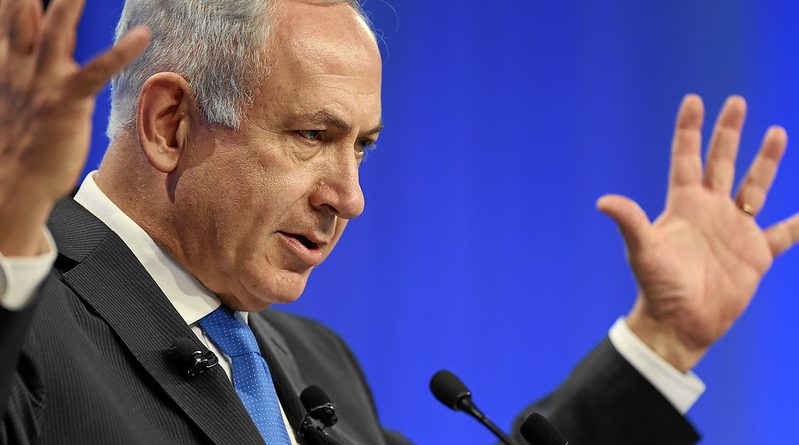ICC rejects Israel’s appeal seeking to void Netanyahu’s arrest warrant
The International Criminal Court (ICC) has rejected Israel’s request for leave to appeal a July decision that upheld the validity of arrest warrants issued against Prime Minister Benjamin Netanyahu and Defence Minister Yoav Gallant over alleged war crimes in the occupied Palestinian territories.
In a decision released by ICC Pre-Trial Chamber, the judges ruled that Israel’s request did not meet the legal requirements under Article 82(1)(d) of the Rome Statute, which allows a party to appeal a decision only if the issue significantly affects the fairness or outcome of the proceedings and if its immediate resolution would materially advance the case.
Israel had sought permission to appeal the chamber’s 16 July decision rejecting its request to withdraw or suspend the arrest warrants and to halt the prosecutor’s investigation into crimes allegedly committed in Gaza and the West Bank.
The ICC found that Israel’s proposed appeal did not arise from the earlier decision itself but rather repeated arguments already decided by the court in previous rulings.
“The issue identified by Israel does not arise from the impugned decision but rather from the earlier Article 19(2) decision, which Israel has already appealed,” the chamber said.
“Israel is not entitled to re-submit the same issue for a second time to the Appeals Chamber, simply because it disagrees with how the Appeals Chamber dealt with it the first time.”
Background
The latest decision marks another setback in Israel’s campaign to challenge the ICC’s jurisdiction over the “Situation in the State of Palestine.”
PREMIUM TIMES reported the court first confirmed in February 2021 that it had territorial jurisdiction over crimes allegedly committed in Gaza, the West Bank, and East Jerusalem, areas occupied by Israel since 1967 on the basis that Palestine is a State Party to the Rome Statute.
Following that ruling, the ICC Prosecutor formally opened an investigation in March 2021 into alleged crimes committed in the occupied territories since 13 June 2014.
On 20 May 2024, the prosecutor announced that he had filed applications for arrest warrants against five individuals, including Mr Netanyahu and Mr Gallant, citing evidence of war crimes and crimes against humanity committed during Israel’s military operations in Gaza.
Israel, which is not a member of the ICC, immediately challenged the court’s jurisdiction, arguing that the court has no authority over its nationals or actions taken in self-defense.
The ICC Pre-Trial Chamber dismissed Israel’s initial jurisdictional challenge in November 2024 as premature, a decision Israel appealed.
The Appeals Chamber in April 2025 partly agreed with Israel, finding that the lower chamber had not sufficiently reasoned its decision and sent the matter back for reconsideration, but without suspending the warrants.
Israel later asked the ICC to declare the warrants void and to suspend the ongoing investigation, arguing that the earlier appeal ruling invalidated the legal basis for the arrest orders.
The court refused, maintaining that the reversal of one procedural decision did not affect the substance of the warrants.
Court’s Latest Ruling
In rejecting Israel’s latest request for leave to appeal, the judges said the country’s arguments simply repeated earlier points about the court’s jurisdiction and timing of the warrants.
They also explained that the Appeals Chamber’s earlier reversal did not affect the warrants, which were issued independently.
“The Request does not identify an issue related to the reasoning in the impugned decision,” the chamber wrote. “Indeed, the issue identified by Israel does not arise from the impugned decision, but rather from the Article 19(2) decision, which Israel has already appealed.”
“The Appeals Chamber declined to address the issue of timing in its judgment, although this was one of the central points of contention in Israel’s appeal,” the ruling said. “It is for the Pre-Trial Chamber to determine the applicable legal basis for addressing Israel’s Jurisdiction Challenge at the present stage of proceedings.”
Finding that Israel’s arguments did not “significantly affect the fair and expeditious conduct of the proceedings” or the “outcome of the trial,” the chamber concluded that there was “no need to consider whether the other conditions of Article 82(1)(d) have been met.”
Having found that Israel’s proposed issue did not meet the test for appeal, the ICC dismissed the request outright, effectively leaving the warrants in place and allowing the prosecutor’s investigation to continue.
READ ALSO: Hamas releases all remaining 20 Israeli hostages
The ruling reinforces the ICC’s jurisdiction over alleged crimes committed in the occupied Palestinian territories and underscores the court’s refusal to bow to political or state-level pressure.
While Israel maintains that the ICC has no authority over its actions, the court’s decision means the warrants for Mr Netanyahu and Mr Gallant remain valid, though their enforcement depends on cooperation from ICC member states.
The case continues as one of the most politically sensitive in the ICC’s history, with potential implications for international justice, the conduct of war, and accountability for state leaders.

